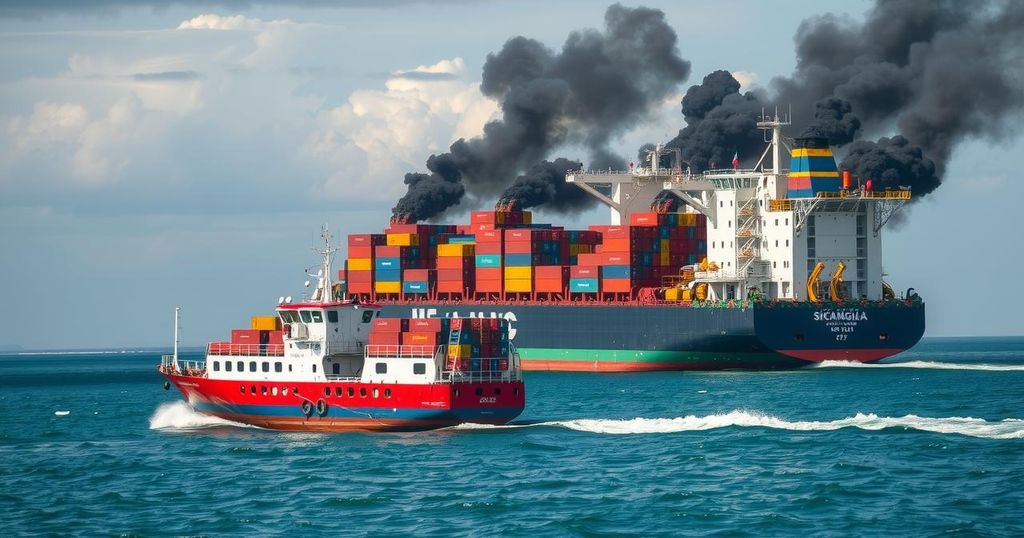Shipping Crisis in Mozambique Driven by Political Unrest

Political unrest in Mozambique has severely impacted shipping operations at the Port of Maputo, resulting in delays of 24 vessels and financial losses of $54 million. The ongoing instability threatens significant foreign investments in the country’s vast natural gas reserves and poses risks to regional maritime security. Ensuring governance stability is essential for mitigating these challenges and safeguarding economic interests in the region.
The political instability in Mozambique has escalated, resulting in a significant disruption to shipping operations at the country’s ports. Following a wave of post-election violence that began in October, the Maputo Port, operated by Grindrod, has been severely affected, leading to numerous delays and cancellations of vessels. As of late November, 24 vessels had experienced delays, while six opted to cancel due to supply shortages. The anticipated delays mark the final quarter of the year as a particularly challenging period, with some cargo only potentially being handled in the following year.
Grindrod emphasized the impact on cargo volumes, particularly within dry-bulk terminals, prompting temporary operational shutdowns at both Maputo and Matola ports. Additionally, disruptions led to the closure of the Lebombo border gate by South Africa’s border authorities, further complicating trade logistics. The government of Mozambique reported losses upwards of $54 million attributed to the unrest at the Port of Maputo, threatening the economic future of the nation, which has seen promising prospects due to significant discoveries of natural gas reserves.
In recent years, Mozambique has gained attention for its massive liquid natural gas reserves, attracting substantial foreign investments, exceeding $60 billion from leading energy corporations, including Total and Exxon Mobil. However, the ongoing Islamist insurgency in the northern regions of the country poses a substantial risk to energy projects, evidenced by the insurgents’ takeover of Mocimboa da Praia, a key port for the gas sector.
The political difficulties facing Mozambique not only endanger local governance and stability but also threaten regional maritime security. The Mozambique Channel has emerged as a pivotal shipping route, especially as vessels begin to divert from the Suez Canal. Consequently, ensuring stability within Mozambique is essential for safeguarding this crucial channel and its abundant natural gas reserves, located within the Rovuma Basin.
Mozambique is presently grappling with significant political challenges characterized by post-election unrest and regional destabilization. The country’s potential is highlighted by vast natural gas reserves that have attracted considerable international investment. However, ongoing conflicts, particularly in the northern provinces, threaten not only domestic governance but also major energy initiatives that are critical for the nation’s economic progression. The shipping crisis resulting from current unrest could have far-reaching implications for trade and security in the Southern African region.
In summary, Mozambique’s current political turmoil not only disrupts shipping operations at vital ports but also jeopardizes the nation’s economic potential and regional security. The loss of significant financial resources, coupled with stalled energy projects due to an insurgency, underscores the importance of restoring political stability. Moreover, preventing the deterioration of the governance landscape is crucial to maintaining the security of vital maritime routes in the Mozambique Channel.
Original Source: maritime-executive.com






